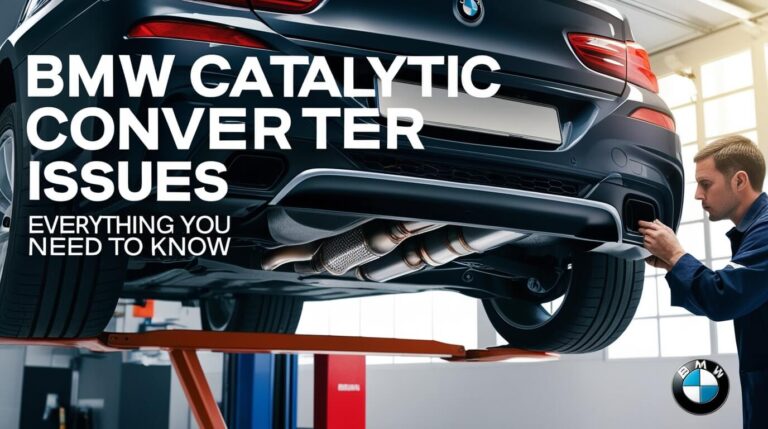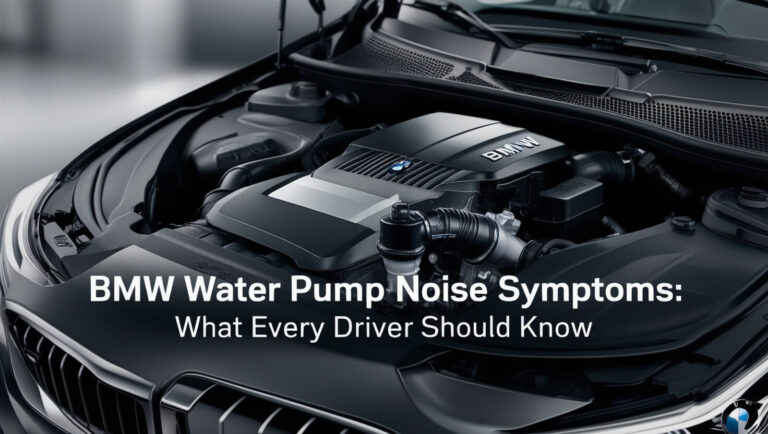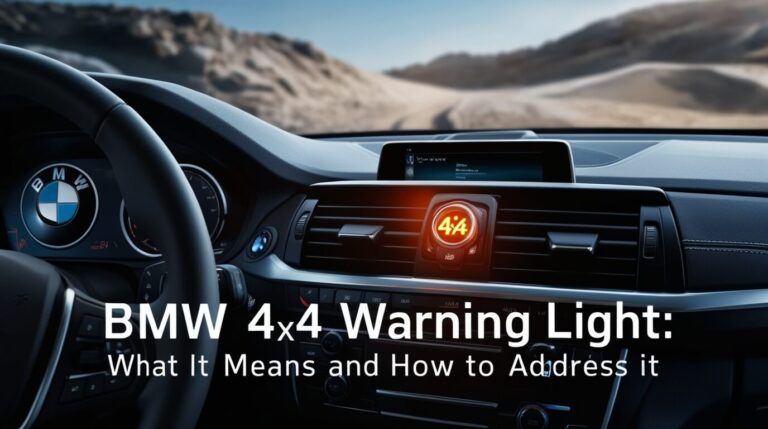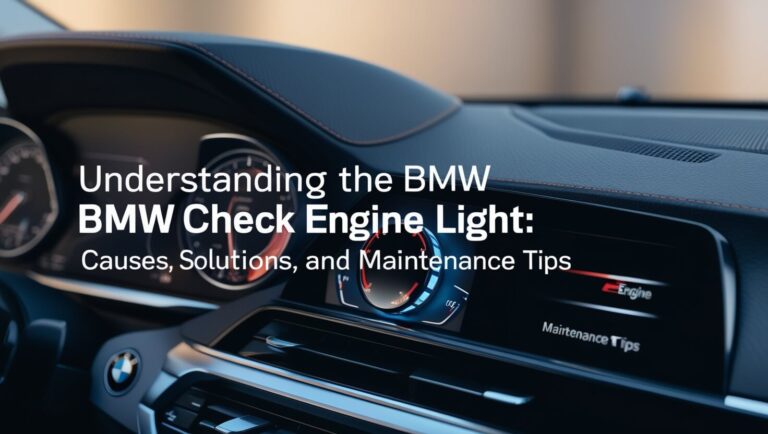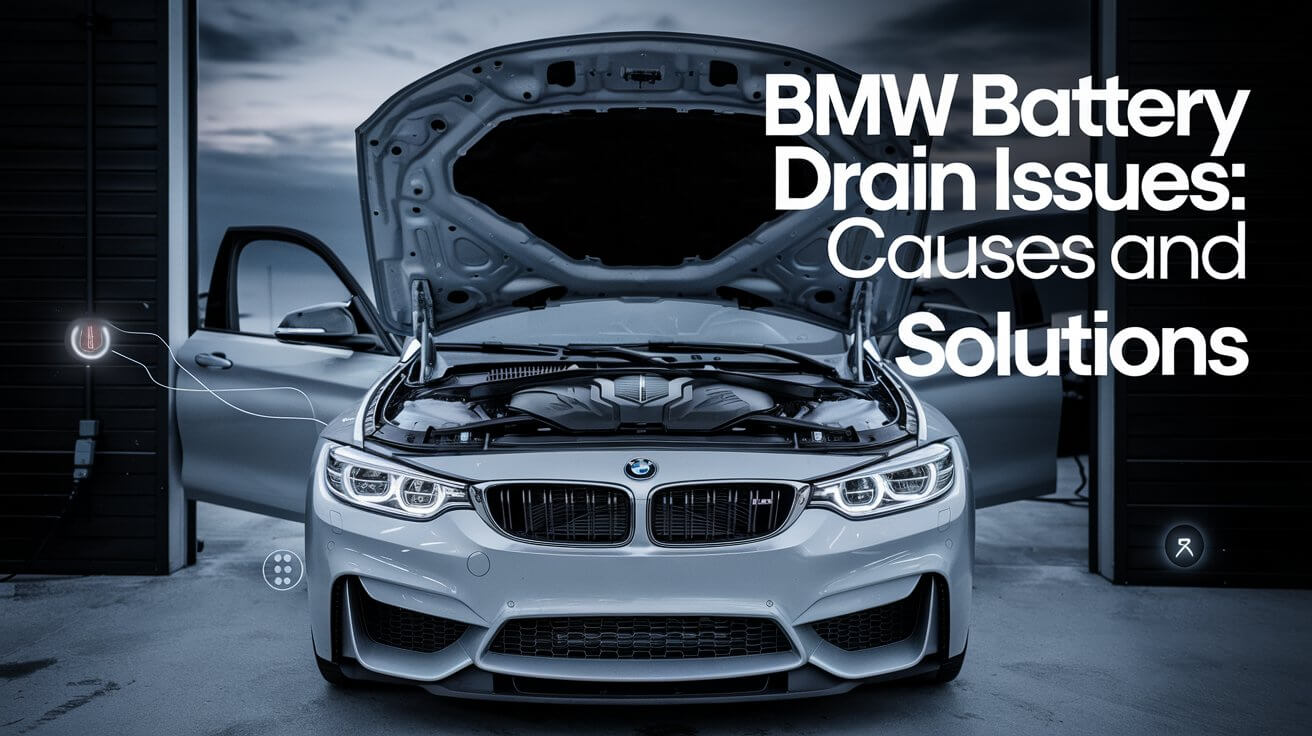
Is your BMW struggling to start? You might be dealing with increased battery discharge. This common problem can leave you stranded and facing expensive repairs. Faulty electrical parts, old batteries, or simply using your car incorrectly often cause these issues.
Let’s uncover why this happens, spot the warning signs early, and find ways to keep your BMW’s battery healthy. With the right know-how, you can avoid surprises and keep your prized vehicle running smoothly.
Common Signs of Increased Battery Discharge in BMWs
Recognizing the early signs of battery discharge can save you from future headaches and expensive repairs.
Warning Messages on the Dashboard
Your BMW’s sophisticated onboard computer system is designed to alert you to potential issues. If you see any of these messages, pay attention:
- “Increased battery discharge”
- “Battery discharge while stopped”
- “Charge battery”
These warnings indicate that your BMW’s electrical system is struggling to maintain proper charge levels.
Electrical System Malfunctions
When your BMW’s battery is losing charge, you might notice:
- Dim headlights or interior lights
- Radio or navigation system shutting off unexpectedly
- Power windows moving slowly
- Erratic behavior from electric seats or mirrors
These symptoms suggest that your vehicle’s electrical components aren’t getting enough power.
Starting Issues and Battery Performance
A dying battery can cause:
- Slow engine cranking
- Clicking sounds when trying to start the car
- Need for frequent jump-starts
If you’re experiencing these problems, your BMW’s battery might be on its last legs.
Main Causes of Battery Discharge in BMW Vehicles
Understanding why your BMW’s battery is discharging can help you prevent future issues.
Faulty Alternator or Charging System
The alternator is responsible for charging your battery while the engine runs. A malfunctioning alternator can lead to:
- Insufficient battery charging
- Overcharging, which damages the battery
- Electrical system instability
Regular checks of your BMW’s alternator can prevent many battery-related problems.
Parasitic Drains from Electrical Components
Modern BMWs are packed with electronics that can drain the battery even when the car is off. Common culprits include:
- Faulty trunk or door light switches
- Aftermarket accessories like dash cams or GPS devices
- Malfunctioning comfort access systems
Identifying and fixing these parasitic drains is crucial for maintaining battery health.
Age and Deterioration of the Battery
Like all batteries, your BMW’s will eventually wear out. Factors affecting battery lifespan include:
- Number of charge cycles
- Extreme temperatures
- Driving habits
Most BMW batteries last 3-5 years, but this can vary based on usage and conditions.
Extreme Weather Conditions
Both hot and cold weather can impact your BMW’s battery:
- High temperatures accelerate internal corrosion
- Cold weather reduces battery capacity and increases oil viscosity
Proper battery maintenance becomes even more critical in extreme climates.
Diagnosing Increased Battery Discharge in Your BMW
Accurate diagnosis is key to resolving battery discharge issues effectively.
Using BMW’s Onboard Diagnostics
Your BMW’s onboard diagnostic system can provide valuable information:
- Access the hidden service menu
- Check the “Battery Capacity Max” reading
- Look for any stored fault codes related to the electrical system
This information can guide you or your mechanic towards the root cause of the problem.
Professional Diagnostic Tools and Procedures
BMW-specific diagnostic tools like ISTA+ can:
- Perform comprehensive system scans
- Identify malfunctioning modules
- Test the charging system and battery health
These tools are typically available at BMW dealerships and specialized independent shops.
DIY Battery Testing Methods
While not as thorough as professional diagnostics, you can perform some tests at home:
- Use a multimeter to check battery voltage (should be above 12.6V when fully charged)
- Perform a load test to assess the battery’s ability to hold a charge
- Check for visible signs of battery damage or corrosion
Remember, DIY tests may not catch all issues, especially in complex modern BMWs.
Resolving BMW Battery Discharge Problems
Once you’ve identified the cause, it’s time to fix the problem.
Replacing the 12V Battery
If your battery is old or damaged:
- Choose a high-quality AGM battery designed for BMWs
- Ensure proper battery registration after installation
- Consider professional installation to avoid damaging sensitive electronics
A new battery can often resolve many electrical issues in BMWs.
Addressing Electrical System Issues
For problems beyond the battery itself:
- Repair or replace faulty alternators
- Fix any identified parasitic drains
- Check and replace worn-out electrical components
Thorough electrical system maintenance can prevent future battery discharge problems.
Updating BMW Software and Modules
Sometimes, increased battery discharge is due to software glitches. BMW regularly releases updates that can:
- Improve battery management
- Fix known electrical system bugs
- Optimize power consumption of various modules
Keeping your BMW’s software up-to-date is crucial for optimal performance.
Professional Repairs for Complex Problems
Some battery discharge issues require specialized knowledge:
- Diagnosis and repair of CANBUS communication problems
- Replacement of advanced electronic modules
- Calibration of new components with BMW-specific tools
For these cases, seeking help from BMW experts is often the best course of action.
Preventing Future Battery Discharge Issues in BMWs
Prevention is always better than cure, especially when it comes to your BMW’s electrical system.
Regular Maintenance and Inspections
Stick to a routine maintenance schedule:
- Have your battery and charging system checked annually
- Keep electrical connections clean and tight
- Address any warning lights or messages promptly
Regular care can significantly extend your BMW’s battery life and prevent unexpected failures.
Proper Battery Care and Charging Habits
To maintain your BMW’s battery health:
- Avoid frequent short trips that don’t allow full battery charging
- Use a trickle charger for long-term storage
- Keep the battery clean and secure in its mounting
These habits can help your battery last longer and perform better.
Mindful Use of Electrical Accessories
Be aware of how you use your BMW’s electrical features:
- Turn off unnecessary accessories when the engine isn’t running
- Limit the use of high-draw features like seat heaters when idling
- Unplug aftermarket devices when not in use
Responsible use of electrical accessories can prevent unnecessary battery drain.
Impact of Increased Battery Discharge on BMW Performance
Battery issues can affect more than just starting your car.
Effects on Engine Starting and Operation
A weak battery can lead to:
- Hard starts or no-start conditions
- Reduced fuel efficiency due to incomplete combustion
- Potential damage to the starter motor from repeated attempts
Maintaining proper battery charge is crucial for your BMW’s overall performance.
Consequences for Onboard Electronics and Features
Modern BMWs rely heavily on electronics, which can be affected by battery issues:
- Erratic behavior from driver assistance systems
- Loss of memory settings for seats, mirrors, and climate control
- Reduced functionality of entertainment and navigation systems
A healthy battery ensures all of your BMW’s advanced features work as intended.
Long-term Implications for Vehicle Reliability
Chronic battery discharge problems can have lasting effects:
- Increased wear on electrical components
- Potential for data corruption in various control modules
- Reduced overall lifespan of the vehicle’s electrical system
Addressing battery issues promptly can save you from more serious problems down the road.
BMW Models Prone to Battery Discharge Problems
While any BMW can experience battery issues, some models are more susceptible.
Common Issues in Specific BMW Series
- E60/E61 5 Series: Known for battery drain issues related to the CAS module
- F10 5 Series: Some owners report increased battery discharge due to faulty trunk modules
- E90/E92 3 Series: Can experience battery problems related to the intelligent battery sensor
Knowing your model’s specific quirks can help you stay ahead of potential issues.
Improvements in Newer BMW Generations
BMW has made strides in addressing battery-related problems:
- Enhanced power management systems in newer models
- More efficient alternators and charging systems
- Improved battery monitoring and diagnostic capabilities
These advancements have reduced the frequency of battery discharge issues in recent BMW vehicles.
FAQs About Increased Battery Discharge in BMWs
How often should I replace my BMW’s battery?
Typically every 3-5 years, but this can vary based on usage and conditions.
Can I jump-start a BMW with increased battery discharge?
Yes, but use caution and follow the proper procedure to avoid damaging sensitive electronics.
Will using a non-BMW battery void my warranty?
Not necessarily, but using a battery that doesn’t meet BMW’s specifications could lead to issues.
Is it normal for my BMW to discharge the battery when parked?
A small amount of discharge is normal, but significant drain while parked indicates a problem.
Can I diagnose battery issues without special tools?
Basic tests are possible, but for accurate diagnosis, BMW-specific tools are often necessary.
Conclusion
Increased battery discharge in BMWs can be a complex issue, but with proper knowledge and care, it’s manageable. Regular maintenance, prompt attention to warning signs, and understanding your vehicle’s specific needs are key to preventing and resolving battery problems. By staying proactive about your BMW’s electrical health, you can ensure a smoother, more reliable driving experience and avoid costly repairs down the road.
Remember, your BMW’s sophisticated electrical system requires specialized care. When in doubt, don’t hesitate to consult with BMW experts who can provide the specific knowledge and tools needed to keep your ultimate driving machine in peak condition.

